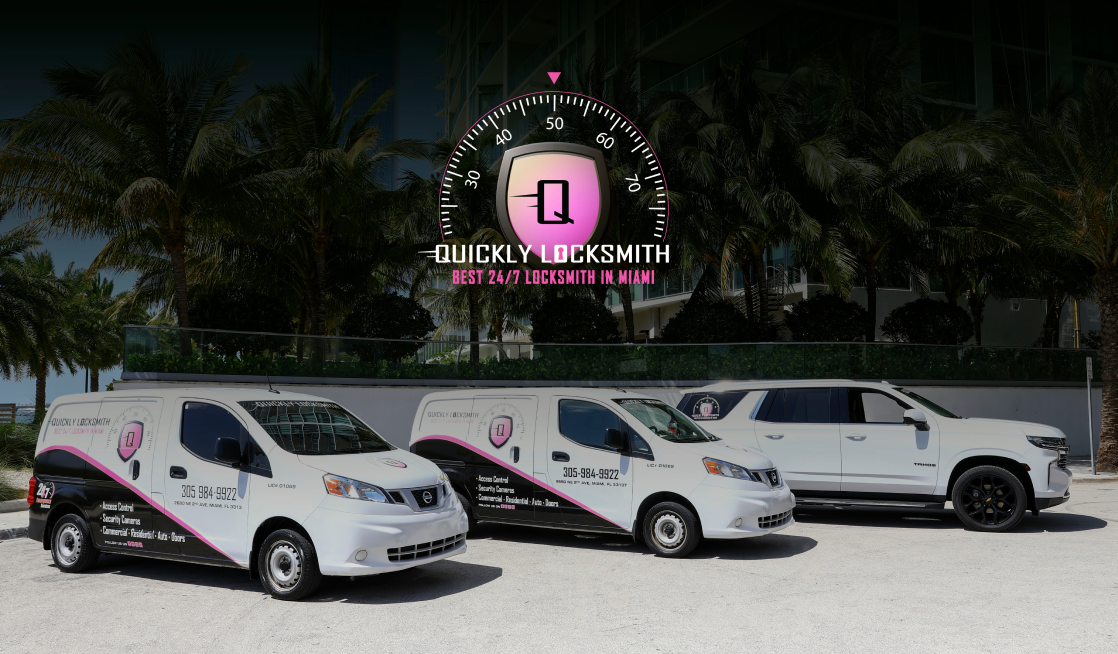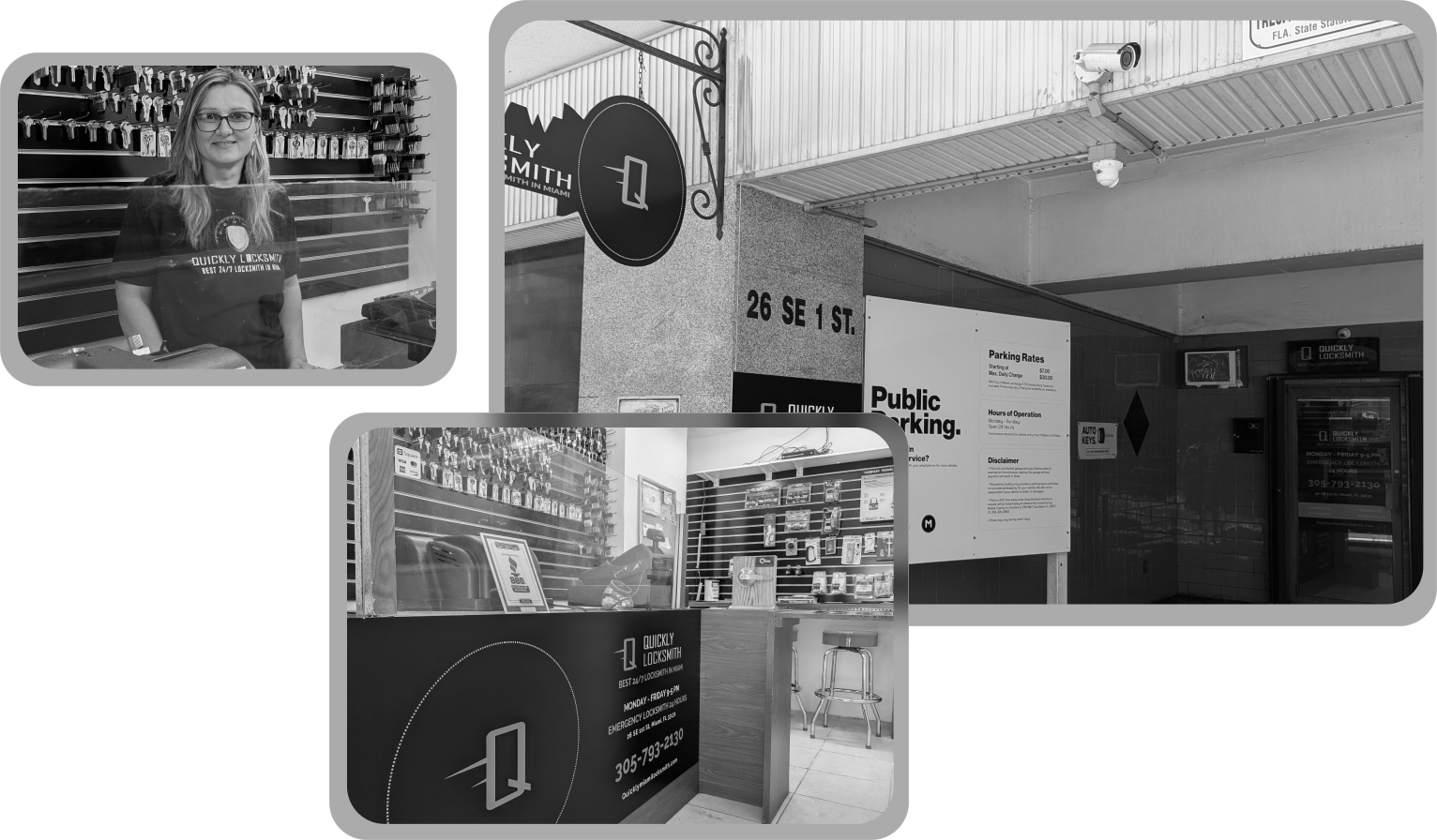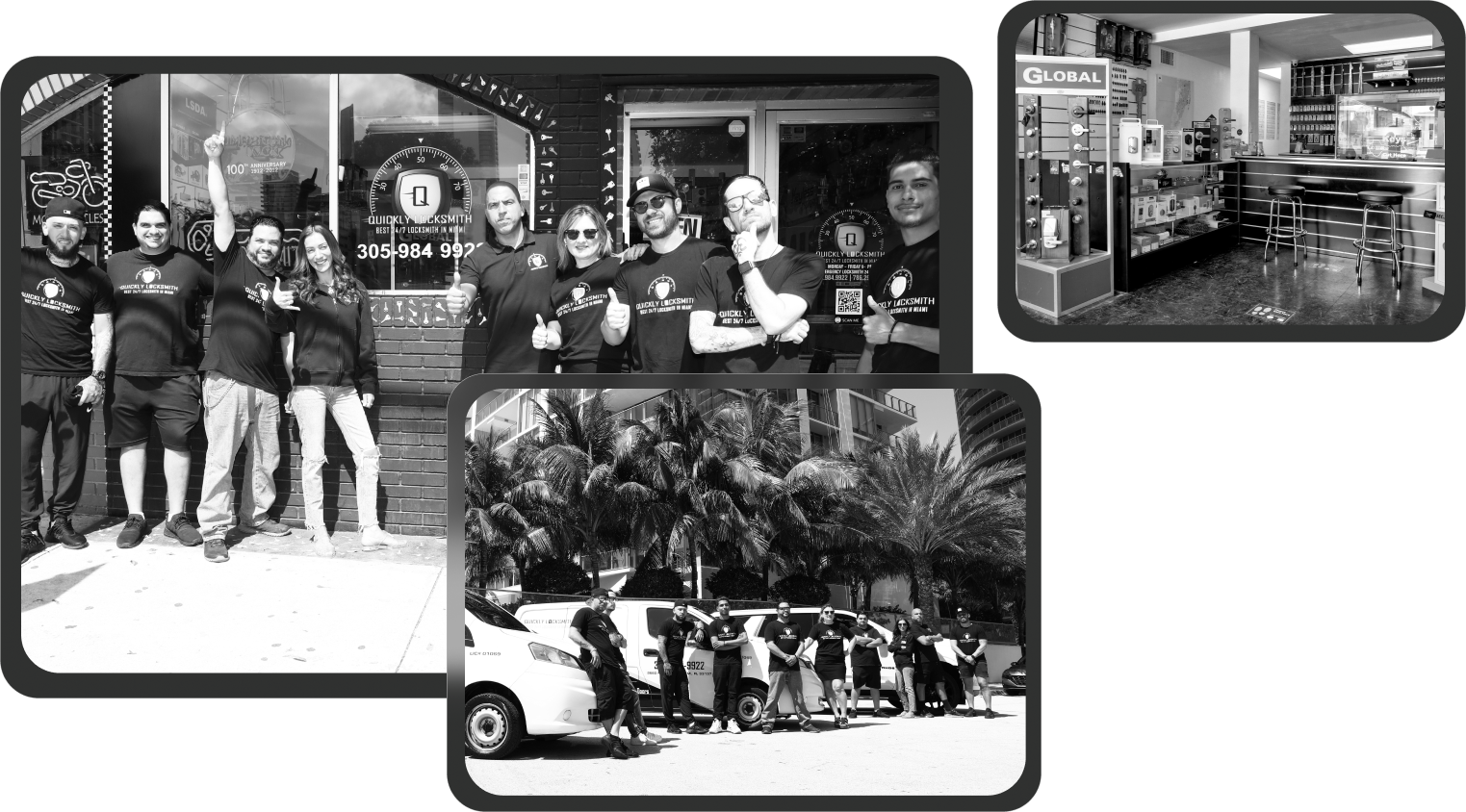Understanding Florida's Locksmith Laws: Miami Requirements & Consumer Protection
Locksmith services are an essential aspect of security and convenience for residents, businesses, and vehicle owners in Miami. Whether you’re locked out of your home, need to secure your business premises, or require assistance with your boat’s locks, a professional locksmith is your go-to expert.
However, navigating the legal landscape related to locksmith services can be complex. Understanding the laws and regulations governing this industry is important for both locksmiths and consumers to ensure a safe, legal, and satisfactory service experience.
In this blog, we will delve into the key legal aspects of locksmith services in Miami. From licensing requirements and regulatory standards to consumer rights and common legal issues, we’ll provide a comprehensive guide to help you make informed decisions.
Licensing Requirements for Locksmiths in Miami
Let’s start by going into more detail on the locksmith licensing process in Miami.
- Qualifications and Background ChecksApplicants must be at least 18 years old to apply for a locksmith license. They must have a clean criminal record, particularly when it comes to theft or burglary-related offenses.A background check is also conducted by the Florida Department of Law Enforcement (FDLE).
- Application ProcessThe application process starts with the submission of a completed application form to the Florida Department of Agriculture and Consumer Services (FDACS).Applicants must provide proof of identity and any required documentation, such as a high school diploma or equivalent.Lastly, an application fee is due, which includes the cost of the background check.
- Ongoing EducationLocksmiths must complete ongoing education courses to stay updated on industry standards, technology advancements, and changes in regulations.Courses are often offered by professional locksmith associations and can include both technical skills and business practices.
Importance of Choosing a Licensed Locksmith
Locksmithing is something someone could probably do without a license, but working with an unlicensed locksmith is risky and can result in unnecessary costs. Here’s why it’s best to choose a licensed locksmith:
- Quality and Reliability. Licensed locksmiths have met specific professional standards and have demonstrated their competence through the licensing process. They are also more likely to be up to date with the latest industry practices and technologies, ensuring high-quality service.
- Legal Protection for Consumers. Hiring a licensed locksmith provides consumers with legal recourse in case of disputes or unsatisfactory service. Licensed locksmiths are required to adhere to state regulations, reducing the risk of fraudulent practices and ensuring ethical behavior.
- Accountability and Trustworthiness. Licensed locksmiths are accountable to the FDACS and must operate within the bounds of the law. Consumers have the option to verify the credentials of a licensed locksmith, adding a layer of trust and security when paying for their services.
- Consumer Rights. Licensed locksmiths are obligated to provide written estimates, proof of identification, and detailed invoices. Consumers also have the right to request licensing proof, ensuring they are dealing with a legitimate and authorized professional.
Key Regulations Governing Locksmith Services in Florida and Beyond
Here are the general regulations that affect professionals offering locksmith services in Florida:
- Licensing and Certification. All locksmiths must be licensed by the Florida Department of Agriculture and Consumer Services (FDACS).
- Consumer Protection Laws. Locksmiths must provide a written estimate before performing any service and they are required to disclose all costs upfront, including any additional fees. Consumers must receive a detailed invoice after the service is completed.
- Business Operation Standards. Locksmith businesses must maintain accurate records of all transactions and services rendered, which should be available for inspection by regulatory authorities.
- Advertising and Ethical Practices. Locksmiths must advertise truthfully and avoid any misleading claims about their services. They should display their license number in all advertisements and business communications.
Specific Rules for Different Types of Locksmith Services
There are also a few rules related to the specific types of services a locksmith might offer:
Residential Locksmith Services
- Residential locksmiths must comply with local building codes and regulations related to home security.
- Locksmiths should be knowledgeable about different types of residential locks and security systems.
Commercial Locksmith Services
- Commercial locksmiths must adhere to specific regulations concerning commercial properties, such as fire safety codes.
- They should be experienced in handling high-security locks and access control systems commonly used in businesses.
Automotive Locksmith Services
- Locksmiths who specifically deal with vehicles must stay updated on the latest automotive security technologies and keyless entry systems.
- Regulations also require the proper handling of vehicle security systems to prevent damage and ensure consumer safety.
Marine Locksmith Services
- Marine locksmiths must comply with maritime regulations and standards for securing boats and other marine vessels.
- Locksmiths should be skilled in dealing with specialized locks and security systems used in marine environments.
Insights Into Consumer Rights and Responsibilities
Before you hire a locksmith for your home, business, or vehicle in Miami, it helps to have an understanding of what your rights are.
- Right to a Written Estimate. Consumers are entitled to receive a written estimate before any work begins. The estimate should clearly outline the expected costs, including labor, parts, and any additional fees.
- Right to Request Identification and Licensing Proof. Consumers can request to see the locksmith’s identification and proof of their state-issued license. This ensures that the locksmith is legitimate and authorized to perform the services.
- Right to a Detailed Invoice. After the service is completed, consumers should receive a detailed invoice. The invoice should itemize all charges, including labor, materials, and any additional fees.
- Right to Know All Costs Upfront. Consumers have the right to be informed of all potential costs before agreeing to the service. There should be no hidden fees or unexpected charges.
- Right to Quality Service and Fair Treatment. Consumers should expect high-quality, professional service from a licensed locksmith. They have the right to be treated fairly and respectfully throughout the service engagement.
- Right to File Complaints. If a consumer is dissatisfied with the service, they can file a complaint with the Florida Department of Agriculture and Consumer Services (FDACS). This provides a formal avenue for resolving disputes and seeking redress.
Consumer Responsibilities When Engaging in Locksmith Services
Even though Miami residents and business owners have specific rights when requesting and paying for locksmith services, there are also some responsibilities to be aware of:
- Due Diligence in Selecting a Locksmith. Consumers should research and choose a reputable, licensed locksmith by checking reviews, verifying licenses, and seeking recommendations.
- Understanding Service Agreements. Before the work begins, consumers should read and understand the service agreement or contract. They should clarify any uncertainties and ensure all terms are acceptable.
- Being Present During the Service. It is advisable for consumers to be present when the locksmith is performing the service. This allows them to oversee the work and address any issues immediately.
- Ensuring Proper Communication. Consumers should clearly communicate their needs and expectations to the locksmith. Providing detailed information about the problem can help the locksmith deliver better service.
- Reviewing the Work Before Payment. Before making the final payment, consumers should inspect the completed work to ensure it meets their expectations. Any discrepancies or concerns should be addressed before settling the bill.
- Keeping Records of the Service. Consumers should retain copies of the estimate, invoice, and any correspondence with the locksmith. These records are useful in case of future disputes or warranty claims.
Common Locksmith Legal Issues and How to Avoid Them
Now that you know what your rights are, let’s look at some of the most common locksmith legal issues that are encountered in Florida and the United States.
- Unlicensed Locksmiths. Operating without a proper license is illegal and can lead to fines, legal action, and business closure. Consumers who unknowingly hire unlicensed locksmiths may face substandard work and limited legal recourse.
- Fraudulent Practices. Scams such as bait-and-switch pricing, where a low quote is given initially but inflated charges are demanded after the work is done, is considered a fraudulent practice. Locksmiths may also misrepresent their qualifications or the necessity of certain services.
- Misleading Advertising. False claims about qualifications, services, or pricing in advertisements can lead to legal action. Using fake addresses or phone numbers to appear local is also illegal.
- Damage to Property. Inadequate skills or improper techniques leading to damage to locks, doors, or vehicles is a common locksmith legal issue. Failure to repair or replace the damaged property can also result in legal claims.
- Breach of Contract. Not honoring the terms of the service agreement, such as failing to complete the work or not meeting quality standards is illegal. Disputes over charges and the scope of work performed is also a common occurrence.
- Personal Injury. If a locksmith’s actions directly or indirectly cause injury to a person, they could face personal injury lawsuits.
How to Avoid Legal Issues
Nobody wants to have to face a lawsuit, so here are some steps that both consumers and locksmiths can take to steer clear of them:
For Consumers:
- Verify Licenses and Credentials: Always check the locksmith’s license and credentials before hiring them. It’s recommended that you use state or local resources to verify their legitimacy.
- Get Written Estimates: Request a written estimate before any work begins, detailing all potential charges.
- Check Reviews and References: Research the locksmith’s reputation through online reviews and ask for references from friends, family, or other people in the area.
- Be Present During the Service: If possible, be on-site while the locksmith performs the work to monitor the process and address any issues immediately.
For Locksmiths:
- Maintain Proper Licensing: Ensure that all necessary licenses are up-to-date and prominently displayed.
- Provide Transparent Pricing: Offer clear, upfront pricing and avoid unexpected charges.
- Advertise Honestly: Make truthful claims about your services, qualifications, and pricing, and only use accurate business information.
- Train Staff Regularly: Provide ongoing training to staff to ensure they are knowledgeable about the latest techniques and regulations.
- Document Everything: Keep detailed records of all transactions, service agreements, and communications with clients.
Filing a Complaint With the Florida Department of Agriculture and Consumer Services
Should you find yourself needing to file a complaint against a locksmith, here are the steps you would need to follow:
Step 1: Gather Information
Collect all relevant documents and information related to the complaint. This includes:
- Service agreements or contracts
- Written estimates and invoices
- Correspondence with the locksmith (emails, texts, etc.)
- Photographs of any damage or evidence of the issue
- The locksmith’s name, business name, address, and license number
Step 2: Visit the FDACS Website
Now that you have what you need, go to the official FDACS website and click on the “File a Complaint” section.
Step 3: Complete the Online Complaint Form
Next, select the appropriate category for your complaint (in this case, locksmith services).
Fill out the online complaint form with accurate and detailed information, including:
- Your contact details (name, address, phone number, email)
- Details of the locksmith and the service provided
- A clear description of the issue or dispute
- Attach copies of all relevant documents and evidence
Note that you can also file a complaint via mail or phone if need be.
Step 4: Submit the Complaint
Review the completed form to ensure all the information is accurate and complete. If you’re happy, submit the form electronically through the FDACS website.
Step 5: Follow Up on the Complaint
After submitting your complaint, you will receive a confirmation and a case number. Use the case number to track the status of your complaint online or by contacting FDACS Consumer Services.
Be prepared to provide additional information or cooperate with any investigation conducted by the FDACS.
Final Thoughts
Understanding the licensing requirements, key regulations, consumer rights, and potential legal issues empowers consumers to make informed decisions, protect their rights, and avoid falling victim to scams or subpar workmanship.
Choosing a licensed locksmith provides a layer of trust and accountability, safeguarding your property and ensuring peace of mind. By staying informed about the legal aspects of locksmith services and knowing how to address any issues that arise, both locksmiths and consumers can contribute to a safer and more transparent industry.
If you want to work with a trusted, reputable, and licensed locksmith in Miami, contact Quickly Locksmith Miami at (305) 984-9922.










